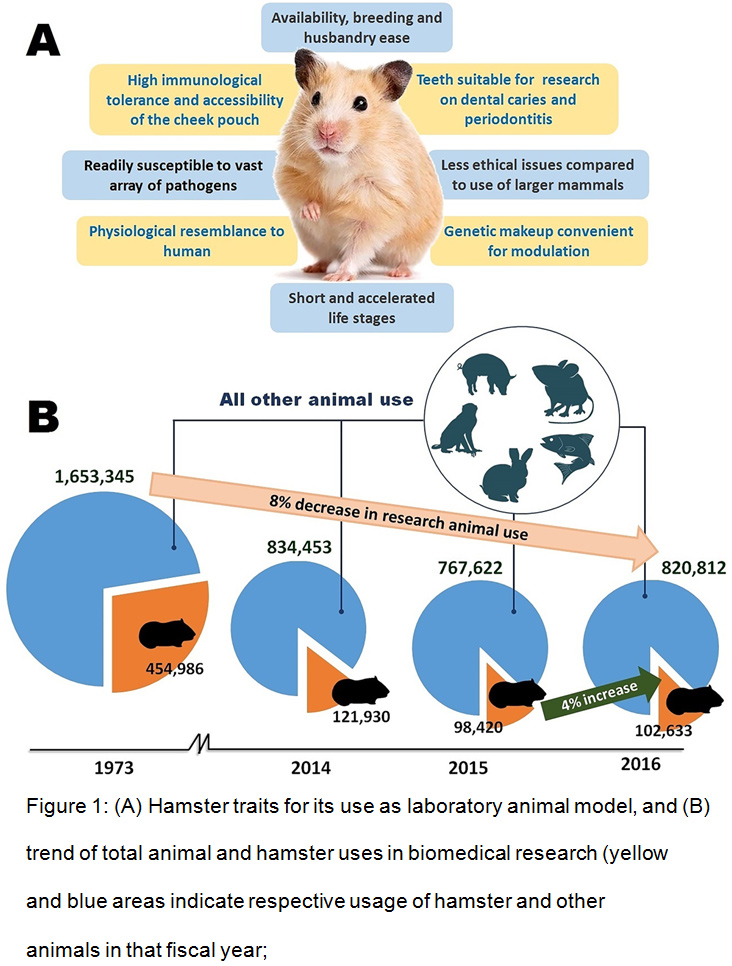To know the age of your hamster, observe its size, weight, and activity levels. Young hamsters are typically smaller and more active, while older hamsters may be larger and move more slowly.
Additionally, check for any signs of aging, such as cloudy eyes or dental problems. Now, let’s delve into the various methods for determining the age of your hamster. Welcome to the world of hamster ownership! As a pet parent, understanding your hamster’s age is essential for providing appropriate care and meeting its specific needs.
Whether you’ve recently adopted a hamster from a breeder or a rescue center, or you’ve had your furry friend for a while, determining your hamster’s age can be a bit tricky. Hamsters make fantastic pets, and ensuring their well-being starts with understanding their age. Let’s explore the different strategies you can use to determine the age of your hamster, so you can provide the best possible care for your tiny companion.

Credit: www.wikihow.com
Determining The Age Of Your Hamster
When you bring home a new hamster, it’s natural to wonder about its age. While hamsters don’t come with birth certificates, there are a few clues you can look for to get an estimate of your furry friend’s age. By examining its physical characteristics and observing its behavior, you can start to piece together the puzzle of your hamster’s age.
Physical Characteristics
A hamster’s physical appearance can provide valuable insight into their age. Here are a few key physical characteristics to keep an eye out for:
- Fur color and quality: The color and condition of your hamster’s fur can change as they age. Younger hamsters usually have brighter, more vibrant fur, while older hamsters may have duller or graying fur.
- Size: Measure your hamster from nose to tail. Generally, younger hamsters are smaller and more compact, while adult hamsters are larger in size.
- Teeth: A hamster’s teeth can also indicate its age. Young hamsters typically have bright white and small teeth, while older hamsters may have slightly yellowed and larger teeth.
- Activity level: Young hamsters are often more energetic and playful, whereas older hamsters may become less active and prefer quieter moments.
Behavioral Cues
The behavior of your hamster can also give you clues about its age. Keep an eye out for these behavioral cues:
- Nocturnal activity: Young hamsters tend to be more active at night, running on their exercise wheel and exploring their cage. Older hamsters may become less active during the night and prefer to rest.
- Eating habits: Young hamsters have a hearty appetite and may eat more frequently. Older hamsters might eat less, have a slower eating pace, or show a more selective taste in food.
- Clumsiness: Young hamsters may be less coordinated and can be seen tripping or stumbling more often. Older hamsters generally have better motor skills and are more graceful in their movements.
While these physical and behavioral cues can provide a rough estimate of your hamster’s age, it’s important to remember that they are general guidelines and may not be entirely accurate. Each hamster is unique, and factors such as genetics and overall health can influence their appearance and behavior. So, take these cues as just one piece of the age puzzle and enjoy getting to know your hamster, regardless of its age!

Credit: biomedpharmajournal.org
Factors Affecting Hamster Age Determination
Breed Variations
Each hamster breed has its own lifespan range, with some living for 1-2 years, while others can live 3-4 years. For instance, the Roborovski hamster can live for 3-4 years, while the Syrian hamster typically lives for 2-2.5 years.
Health And Care
Proper health and care significantly impact a hamster’s lifespan. Regular veterinary check-ups, a balanced diet, adequate exercise, and a clean living environment can contribute to a longer and healthier life for your pet hamster.
Methods For Estimating Hamster Age
Estimating the age of a hamster can be challenging, especially if you’ve adopted or rescued one without knowing its history. However, there are several methods you can use to get an idea of the age of your pet. These methods can include examining the hamster’s teeth, assessing its fur condition, and analyzing its activity level. By using these techniques, you can gain valuable insights into your hamster’s age and provide appropriate care based on its life stage.
Teeth Inspection
Hamsters’ teeth can be a reliable indicator of their age. A young hamster will have sharp and pristine teeth, whereas an older hamster will have teeth that may show signs of wear and tear. By gently lifting the hamster’s lips, you can observe the condition of its incisors. If the teeth are yellowed or significantly worn down, it’s likely that the hamster is in its senior years.
Fur Condition Assessment
Another indicator of a hamster’s age is the condition of its fur. Young hamsters typically have soft, sleek, and shiny fur, while older hamsters may have dulled or thinning fur. Additionally, older hamsters may show signs of graying or loss of fur around their face and body. By gently examining your hamster’s fur, you can gain insights into its age and overall health.
Activity Level Analysis
A hamster’s activity level can also offer clues about its age. Young hamsters are generally more active, engaging in frequent bouts of running, exploring, and playing. On the other hand, older hamsters may display decreased energy levels and reduced interest in physical activities. By observing your hamster’s behavior and movement patterns, you can make an estimation of its age range.
Consulting With A Veterinarian
Determine your hamster’s age by consulting with a veterinarian. A professional evaluation based on teeth and health can accurately gauge your pet’s age. Trust expert guidance for precise age assessment.
Professional Examination
If you are unsure about the age of your hamster, consulting with a veterinarian can provide you with valuable insights. A professional examination is crucial in determining your hamster’s age accurately. Veterinary professionals have the training and experience to identify the physical characteristics and signs that can help estimate your hamster’s age. During a professional examination, the veterinarian will consider various factors such as the hamster’s size, weight, fur condition, teeth condition, and overall health. By assessing these factors, the veterinarian can make an educated estimation of your hamster’s age. Keep in mind that the accuracy of age estimation can vary depending on the species and individual hamster.Age Estimation Accuracy
While a veterinarian can provide an estimation of your hamster’s age, it’s essential to remember that it might not be 100% accurate. Age estimation can be challenging, especially for hamsters that are fully grown, as their physical characteristics may not undergo significant changes. Due to individual variations, it’s possible for the veterinarian to provide a broad range of ages rather than a precise number. Additionally, it’s important to note that age estimation becomes more difficult as your hamster ages. Nevertheless, a professional examination by a veterinarian remains the most reliable method to determine your hamster’s age. To enhance the accuracy of age estimation, the veterinarian may recommend additional diagnostic tests, such as X-rays or blood work. These tests can provide further insights into your hamster’s health and help in determining its age. In conclusion, if you are uncertain about your hamster’s age, it is advisable to consult with a veterinarian for a professional examination. While age estimation may not be entirely precise, a veterinarian can provide you with valuable insights based on their expertise. Remember, a professional examination is the most reliable method to determine your hamster’s age accurately.Caring For Aging Hamsters
As our beloved hamsters grow older, caring for aging hamsters requires special attention and adjustments to ensure their comfort and well-being.
Specialized Diet Requirements
Older hamsters may have specific dietary needs that can help prolong their quality of life. Consider providing soft food options and extra protein to support their aging bodies.
Comfort And Housing Adaptations
Make necessary changes to their habitat to accommodate their aging bodies. Ensure easy access to food and water and add extra bedding for warmth and support.

Credit: biomedpharmajournal.org
Frequently Asked Questions On How Do I Know How Old My Hamster Is
How Can I Determine My Hamster’s Age?
To determine your hamster’s age, examine its teeth for signs of wear, check the size and color of its eyes, and observe its activity level. Consult a vet for more accurate age determination.
What Are The Common Signs Of Aging In Hamsters?
Common signs of aging in hamsters include decreased activity, weight loss, cloudy eyes or cataracts, and dental problems. Regular vet check-ups can help monitor your hamster’s health as it ages.
Is There A Way To Estimate My Hamster’s Age If Unknown?
If you are unsure of your hamster’s age, you can estimate based on physical characteristics like weight, fur quality, and agility. A vet examination can provide more insights into your hamster’s approximate age.
What Is The Average Lifespan Of A Hamster?
On average, hamsters live for about 2 to 3 years, depending on the species and individual care. Providing a balanced diet, proper housing, and regular veterinary care can help extend your hamster’s lifespan.
Conclusion
In a nutshell, determining the age of your hamster may seem challenging, but there are certain signs you can look out for. By observing their physical appearance, behavior, and teeth, you can estimate their age with some level of accuracy.
Remember to consult a veterinarian for precise information and guidance. Knowing your hamster’s age will enable you to provide the appropriate care and ensure their overall well-being. Happy hamster parenting!
- understanding hamster body language - April 22, 2024
- In The Wild: Exploring The Lives Of Wild Hamsters - April 22, 2024
- Leaky Bladders And Urinary Woes: Understanding Hamster Urinary Issues - April 22, 2024


